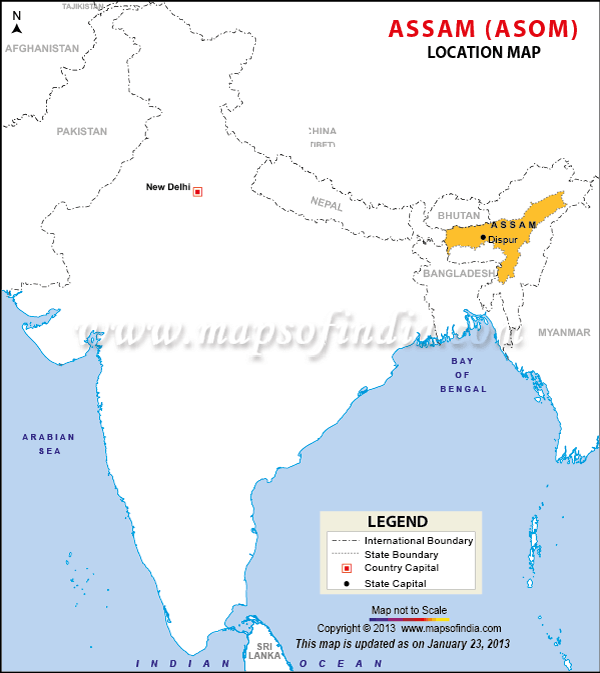Contemplating Place in Assam

Siddhartha Deb's Point of Return is the most fascinating work of fiction that I have read recently. It is set in the Indian state of Assam as tribal ethnic identities asserted themselves against those whom they considered not to be indigenous and against the Indian state itself. Here is History Guy's description of the conflict:
Assam Rebellion (1980-Present): The United Liberation Front of Assam (ULFA) formed in April 1979 in response to an influx of non-Assamese from Bangladesh and parts of North East India. This movement seeks to evict those "foreigners" and seek greater autonomy from the Indian government.
The story deals with the relationship of a man with his son in this context, and how the ideals of the former are shattered by the rebellion. He is an administrator, veterinarian by trade, who deals with agricultural problems in Assam. He is typical of a Bildungsbuergertum: a man of education and culture who see himself as playing a critical role in building the nation. He dedicates his life to bringing modernity to India. After he is attacked and publicly humiliated, he suffers from a stroke that further complicates his ability to perceive how his world is changing.
Assam is a remote state within India. It is connected only by a narrow bridge of land that is serviced by poor roads. Many citizens were forced to relocated from East Pakistan/Bangladesh at the time of the partition. Because of the rebellion, the boundaries of the state changed. Assam was broken up (this map shows the new borders of the smaller state). The ethnic groups who demanded autonomy broke up the state: physically by partitioning it; culturally by asserting the dominance of indigenous from non-indigenous.

Changing boundaries and changing identities lead to dislocation within the story. As a man displaced within his own country, he is concerned a foreigner. India becomes more a fantasy than a useful image. He dreams of moving out of the city to retire. His plans to improve nutrition in the state are dismantled. Everywhere he is confronted as an outsider. What is left of his India is the buildings that were made: the state capital, the bureaucratic buildings, etc.
Deb's description of these changing perceptions of space effectively show how difficult identities can be. The sense of where one is changes from moment to moment, based on one's interactions with other people and experiences. There is no one place, rather a series of overlapping spaces whose borders cannot be fixed.





1 Comments:
Great article. I really enjoy share for my friends and post on my blog. This article is very remarkable. Well Done!!!Contact Lenses
Post a Comment
<< Home